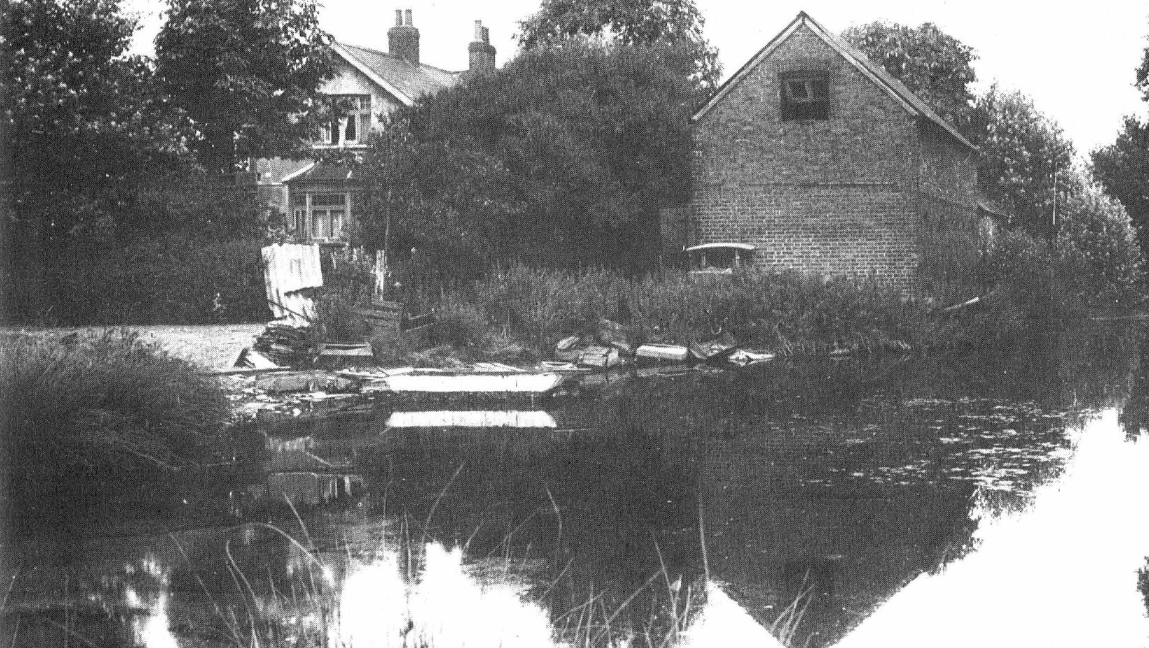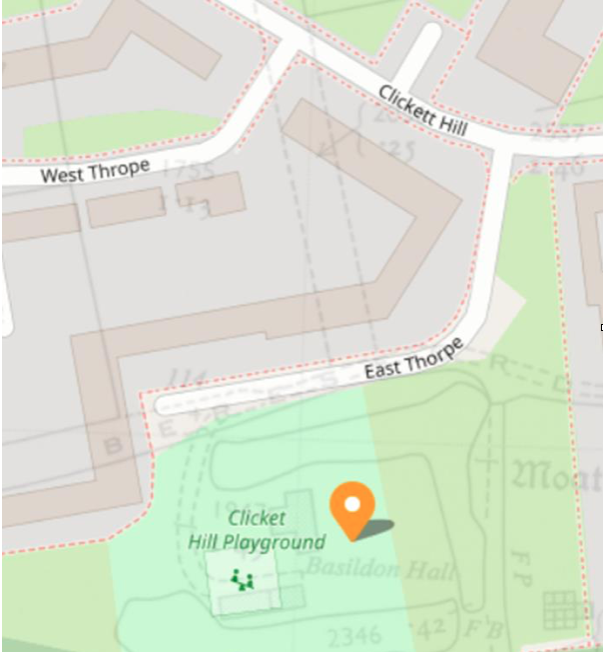Daphne Andrews (as narrated)
Basildon Hall. 1942
I was born in Romford in 1934 my name then was Daphne Hayward then. We moved here in 1942 when I was 7 years old mainly because of the war and mum and dad had always wanted a small holding and saw this house advertised with the land, not sure if it was the “Small Holder” or similar type of magazine and it was for rent.
They had no background in farming. Dad was born in Barking. Mum was born in Bow.
They moved in to Basildon Hall it used to be the Manor House and is mentioned in the Domesday book. The land that belonged to the hall was about three acres with a moat three quarters of the way round it with a little bridge where you crossed over.
There was another field on the opposite side of Beresford Road that was six acres as you walked further up past Basildon Hall there was an eleven-acre field and this was used by the ministry they used to grow wheat and flax etc here.
Mum and Dad bought a bit of everything Cows, horses, Chickens, ducks, turkeys, geese, pigs, and goats but not a donkey as dad said it wouldn’t earn it’s keep.
They did not have any previous experience of running a small holding. My father worked at Roneo corner in Romford, for Roneo Neopost Equipment they made the franking machines. Then they went over to munition’s and he made things in the machine shop when he first started, he was called a belt man they used to look after the big belts used to run the machines ‘it different now’ but in them times they used to lace them together if they split.
Mum and Dad would just buy the animals as they went along. The house they bought (Basildon Hall) was owned by a German by the name of Mr Brasner he rented to use for just over £1.00 a week. It had 11 rooms so was quite big.
Mum would go to Wickford market (livestock) I can remember her buying some chicks and bringing them home in her shopping bag.
We would look after them till they were big enough to lay eggs and would do the same for the ducks.
In those days you could buy duck eggs that where ready to go under the hens or ducks. We also had rabbits then we bought goats.
As far as I can remember we could not sell the eggs, but would have to clean and grade (size) the eggs that was my job and place them into trays which held around thirty eggs then stack the trays on top of each other and the man from the ministry would come once a week to collect them.
We were allowed to kill one pig a year, but later it was two, we used to do bacon and the rust was for fresh meat we wasn’t allowed to sell the meat you could only give it to people so the neighbour ‘s got extra.
They then brought a white cow called snowball for milk my brother and I had a small milk round you were allowed to take it to people and the goats milk was supposed to be partially good for people.
When my sister was about thirteen, I would have been ten dad bought our first horse he put a cart to it so we could ride around in it.
Dad had a motor bike then progressed to a car that had been in an accident so he panel beat out the dents it was a Morris eight BYF 378 after that we had different cars.
Earlier history from an earlier post in a Basildon Heritage FaceBook post
Manor was owned by a Kings son. Jessie Payne
Surrounded by East Thorpe, Clickett Hill and Rayside in the New Town is a dry moat, which until a few years ago was still filled with water. This relict of the days when moats were a defence against marauding Danes and wild animals is the last link with the manor of Little Barstable or Basildon Hall.
In the middle ages knights had to be found to guard the castles, but later this service was commuted for a money payment. This manor had to pay rent in lieu of castle guard at Rochester Castle on the Medway in Kent.
The Domesday survey (1986) records that Barstable Manor was in the possession of Odo , Bishop of Bayeux. Humphrey Walden held it under a son of Edward I, Edmund of Woodstock, Earl of Kent, who was beheaded in 1330 and from 1399 to 1419 it belonged to the Walden Family. William Sandell who died in 1563, possessed Little Barstable Manor which was declared worth £20 and was held by Anthon Walden. The Sandells held the Manor until 1604 when John Lake of North Benfleet who had married Elizabeth Sandell about 1589 bought it for £1,121 It was then occupied by Hugh Nevell, John Lake left Little Barstable or Basildon Hall to his wife for life. His son then sold the manor to Richard Chester of Leigh in June 1622. In the 18th century the Jerry family lived there. The baptisms of seven of their children are recorded in the Basildon Registers, and one as a private baptism .
Irish labourers, came to do harvest work. Etc., in the eighteenth century and one John Carter died in Basildon Hall in 1779
In 1811 John Woodard lived at Basildon Hall and his fifth son Nathanial, was born there that year. He was educated privately and after going to Oxford he was ordained . He was concerned of the lack of good schools for the middle classes and thought of a public school education on church lines. As a result of his work, a society was founded to bring his ideas into being. Schools were founded. Lancing College, near Shoreham, Sussex being one of them, and he is buried in its beautiful chapel.
The site of this important ancient building is now a green space and is a Heritage site. but there is nothing there to inform people about it and it's history. There is still a small overgrown pond that is a part of the moat on one side of the space



Leave a Comment
I hope you enjoyed this post. If you would like to, please leave a comment below.